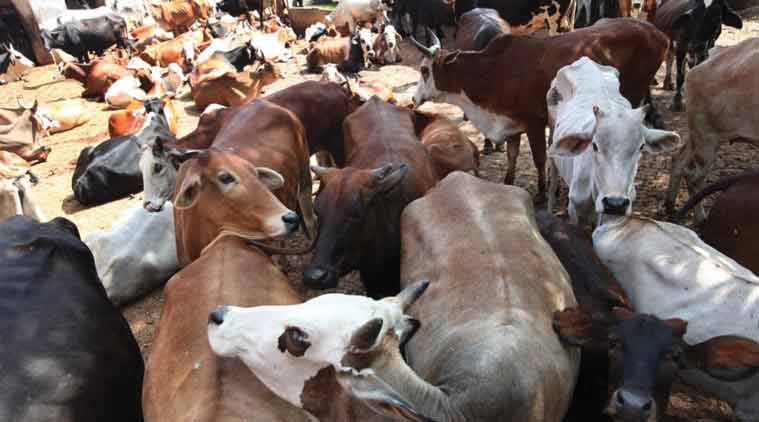In a recent order, the Allahabad High Court observed that cows should be given the status of a National Animal, owing to the fact that “Cow is part and parcel of the culture of India”. The Court also observed that beef consumption cannot be deemed a fundamental right of any person.
The Court reportedly stated that Fundamental Rights are not only the prerogative of the beef-eaters, rather those who worship cows and are financially dependent on them also have the Fundamental Right to lead a meaningful life. The Allahabad High Court order has thus once again opened up the debate regarding cow protection in the country. However, if we have to seriously protect the cow population, then the country ought to start by harmonizing a plethora of state laws with inconsistent provisions.
Cow protection a part of Directive Principles of State Policy
Article 48 of the Constitution clearly states, “The State shall endeavour to organize agriculture and animal husbandry on modern and scientific lines and shall, in particular take steps for preserving and improving the breeds and prohibiting the slaughter of cows and calves and other milch and draught cattle.”
Directive Principles of State Policy aren’t directly enforceable in a Court of law. Yet, they are the fundamental principles of governance and the State is supposed to proactively implement them in its legislative and executive policies.
So, the left-liberal cabal in the country might oppose cow protection, but the fact remains that the Constitution makers considered it essential in their own wisdom. This is why it has been included in the Constitution in the first place.
Inconsistent state laws
The biggest obstacle in announcing a uniform or national policy for cow protection is that “preservation, protection and improvement of stock and prevention of animal diseases” is a state subject in the Indian Constitution. When it comes to prohibiting the slaughter of cows and other cattle, the states make their own laws.
So, effectively we have a situation in which some states have banned cow slaughter altogether, while some others have banned the slaughter of only agricultural cattle. Moreover, Kerala and some Northeastern states have not enacted any legislation against cattle slaughter. Still, in some other states, there are legal provisions for animal preservation but they cannot really be described as the prohibition of cow slaughter.
Inconsistencies and absurdities
Some of the anti-slaughter laws are decades old and many absurdities have been read into such laws. The official website of the Department of Animal Husbandry and Dairying gives one such example- the Maharashtra Animal Preservation Act, 1976.
As per the Department of Animal Husbandry and Dairying website, “This Act does not define a calf. Normally the young one of the cow is a calf until it grows into an adult, acquiring the capacity for procreation, which is around the age of 3 Years. Thus, a young one till the age of 3 years should be considered as a calf and it is likewise defined in some of the State Laws also. However, in Maharashtra, in the absence of a clear-cut definition of a calf in the Statute, a calf is administratively (not legally) defined as a young one up to the age of one year.”
On the other hand, the Act defines a bull or bullock as a male progeny above the age of 3 years. The Union Department website adds, “Thus, a calf between the age of one year and up to 3 years is neither considered a calf or as a bull / bullock and thus does not fall within any of the categories specified in the schedule of animals to which the Act applies. It thus remains out of the protective umbrella and is liable to be slaughtered.”
Need of a National law
There are clearly many inconsistencies in the anti-Cow Slaughter Acts enacted by different states. Different definitions, substantive provisions and punishments create unnecessary chaos and confusion.
However, only a uniform law at the national level can adequately ensure cow protection. Although imposing a ban on cow slaughter is a state subject, Article 249 empowers the Parliament to legislate with respect to a matter in the state list “if the Council of States (Rajya Sabha) has declared by resolution supported by not less than two-thirds of the members present and voting that it is necessary or expedient in the national interest that Parliament should make laws with respect to any matter enumerated in the State List specified in the resolution.”
If India’s national leaders are serious about putting the Constitutional mandate of prohibiting cow slaughter into effect, then the only solution is to pass a resolution of the kind described by Article 249 and to enact a nationwide law that imposes a sweeping ban on the slaughter of cows and other cattle.
